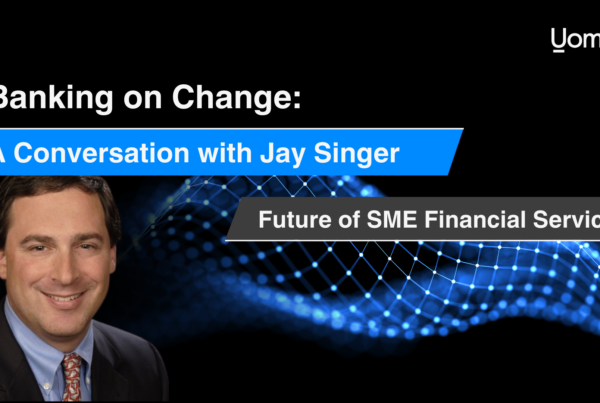To protect the privacy of the individual who shared their experience, we’ll refer to them as ‘Alex’ throughout this article. While the name is fictional, the story and insights are real.
Imagine losing your life savings in a matter of hours to a voice on the telephone. For one individual, this nightmare became a reality. In this educational piece, we delve into the intricate world of financial fraud through the lens of someone who experienced it firsthand. Their journey from victim to educator offers invaluable insights into the methods scammers use and the steps we can all take to safeguard our financial well-being.
We hope that by sharing this detailed account, readers will gain a deeper understanding of the sophisticated tactics employed by modern scammers. This interview not only highlights the emotional and financial toll of such fraud but also demonstrates the importance of public awareness in handling these crimes. By bravely sharing their experience, our interviewee, Alex, is contributing to a wider effort to educate and protect others from falling victim to scams of a similar nature.
Initial Contact
Alex’s ordeal began with a seemingly innocuous text message, mirroring a legitimate experience from years prior. “This story essentially begins a couple of years ago, when I received a text message from a credit card company with whom I had a card that had been compromised in a similar fashion … It was all legitimate and I remember being impressed by how quickly it was nipped in the bud,” Alex recalled.
Fast forward to April 3, 2024, at 11 AM, when history seemed to repeat itself. A text message, appearing to be from his bank, arrived in the same format as the previous legitimate communication. “The message was perfectly composed, with no obvious spelling or grammatical errors,” Alex noted. Despite coming from an unfamiliar number, this didn’t raise suspicions, as he was accustomed to receiving messages from random numbers associated with different companies.
Following the same protocol as before, Alex replied ‘N’ to confirm he didn’t recognise the transaction. “I expected it to pan out in much the same way as my previous legitimate encounter,” he explained. In which he had received a phone call where the company had guided him through cancelling and replacing his compromised card.
However, this time, the familiar scenario masked a scam. “With hindsight, I now realise that this was likely a ‘phishing’ email, and I most likely would have received it even if I was not a customer of Lloyds Bank, however, because of my previous similar experience, and the fact I was indeed one of their customers, I took it at face value,” Alex reflected.
The Phone Call
Within 10 minutes, Alex received a phone call that would set the stage for the scam.
Alex recounts, “Oftentimes scammers operate from other countries and this would have immediately rang alarm bells, but this chap, who introduced himself as ‘Darryl Jones’ spoke perfect English, and at this point I was satisfied that he was who he said he was.”
The caller proceeded to explain the situation and how they would handle the case. What struck Alex was the caller’s exceptional communication skills. He described the scammer as one of the most well-spoken and composed individuals he had ever encountered in their professional career, speaking fluently without any pauses or stuttering.
“He addressed me directly by my name, which straight away put me at ease. If he knew my name, then it must be the bank, right? With hindsight, I now believe that this individual must have been able to link my phone number to my name, presumably with data stolen or leaked in a previous breach.”
Further, the scammer employed other psychological tactics. As the situation was explained, the caller came across as professional, knowledgeable, and highly assertive. They used tactics that Alex described as ‘fear, uncertainty and doubt’ to make the situation appear as serious as possible and to ramp up anxiety levels.
Critically, the scammer avoided common red flags. “The usual red flags of being asked for personal details like passwords, memorable answers, 2FA codes or anything else similar were completely absent during the entire phone call. Had I been asked for these, I would have immediately terminated the call.”
Doubts and Hesitations
“The chap on the phone said that because my account had become so compromised, we would go through a process of transferring all of my funds into a safe account via a Secure Block link (SMS message that takes you to the authentication stage on your banking app), close the existing account, set up a new one, and transfer funds into the new account.
I started to have some suspicions about the call at this point, and I challenged him on this. Whatever question I asked, he always had an answer for, and the answers were delivered in a highly polished and professional way with just enough jargon injected into them to add to the confusion, which was enough to offset my fears at that point in time.
Then, when it was time to start transferring, I felt the name on the account I was transferring to was a little odd, but when challenged, he reassured me again that the banks do this so the criminals don’t see that the bank is onto them.
I felt strange about it, but then he knew my name from the outset, was super professional, friendly, and he always seemed to have a convincing explanation for any of my questions, so against what I now know to be my better judgement, I proceeded and did what they asked. I think they detected in my voice that I was in quite a vulnerable state at the time. On the morning of it happening I was sleep deprived and feeling unwell, and I am now convinced that this played a part in me continuing with the conversation instead of hanging up.”
The Moment of Realisation
The full weight of the situation didn’t hit Alex until after the transfers were complete. “I think the moment when the penny truly dropped for me was after I’d finished doing the transfers. I just had a bad feeling about it, my anxiety increased, but I knew that if I was being scammed, that it was now too late, and I’d gone past the point of no return,” he recalled.
His fears seemed to be confirmed when the scammer attempted to book a branch appointment at a location much farther than necessary. This discrepancy prompted Alex to take action: “I then said that once we’re off the phone, I’d be ringing the bank myself to confirm if they knew anything about these purported events, which the scammer seemed fine about.”
The grim reality was confirmed moments later: “As soon as I was off the phone to him, I immediately rang the bank, and it became apparent straight away that I’d been the victim of a scam.”
Reporting the Scam
The process of reporting the fraud was an ordeal in itself. Alex was transferred to the bank’s fraud department, where he faced a challenging interview. “This interview was quite unpleasant and gave me the impression I was being ‘victim blamed’, without them actually explicitly saying as much,” he shared.
The bank suggested reporting to Action Fraud through their website, which led to a more empathetic interaction, though ultimately they could not find any avenues to investigate. Lloyds Bank opened a case but initially stated they couldn’t offer a refund. They did, however, offer to log a formal complaint. Alex noted that much of the questioning focused on his state of mind and health, factors that were already compromised due to recent personal challenges.
Alex had to contact multiple institutions, reliving the traumatic experience repeatedly. “I was also advised I needed to speak to all of my banks and any other institutions with whom I may have arrangements, so sadly I was forced to relive my ordeal multiple times and I spent what felt like 10 – 12 hours on the phone to various banks and creditors explaining my situation.”
The Psychological Aftermath
“Immediately afterwards, the psychological impact was enormous. I felt like I had been violated. I felt like I was stupid. I felt like I’d let myself and everyone else I cared about down. I felt like I was reckless. I wondered to myself why this had happened to me of all people? What had I done to deserve this?
I felt like I had ruined my future, and I was condemned to struggle financially for the rest of my life. This had a profound impact on my mental health; I have always struggled with money and recently things had seemed to be looking up, but now, in the space of one phone call and two hours, someone who I would never meet had stolen everything from me and destroyed my life.
In the immediate hours after the scam, I was so upset and distraught that I seriously considered ending my life. I just didn’t see that I had a future worth living. In a single day, I went from being someone well on their way to being financially stable and comfortable, to feeling as though I would always be struggling, and that was extremely disheartening.
The following weeks were rough. I felt very low and hopeless, as though life was just going to be a constant struggle until the very end despite living what I felt to be a frugal and minimalist lifestyle in recent years to try and get to that comfortable place. It felt like a pointless endeavour. Every morning I woke up, I felt like I was in a nightmare, and if I just woke up it would be over with, but it never was.
The other challenging aspect was telling my family and some of my close friends what had happened to me. I felt like I was going to be ridiculed, although that turned out to be a misplaced fear as everyone showed me considerable empathy. Even so, it was not at all easy to relive this experience over and over again.
I was extremely close to seeking medical help for the resulting depression as I wasn’t sure how I could cope with life without being medicated, but decided that wasn’t the answer and to try and tough it out.
As time has gone on, it’s become easier, and I’ve come to terms with it, but I will never forget how it made me feel and I wouldn’t wish it on my worst enemy. Even writing this out now is triggering painful flashbacks of what happened that day and in the following weeks.”
Recovery and Lessons Learned:
In the aftermath, Alex made significant changes to his approach to online banking and financial transactions:
- Reducing all arranged overdrafts to nominal sums
- Avoiding large cash amounts in current accounts, instead using savings accounts with different banks
- Relocating banking apps to a separate device that stays at home
- Implementing maximum security measures for all financial accounts
- Never responding to unsolicited bank communications, regardless of how genuine they appear
- Always initiating contact with banks using official telephone numbers
He emphasised, “My overall opinion of online banking hasn’t changed too much otherwise, I believe it is fundamentally safe and that the weakest link is in fact the user, but it has certainly made me take stock of my own habits and tighten everything up considerably”
Advice for Others:
Drawing from his experience, Alex offers the following advice to help others avoid falling victim to similar scams:
- Never answer calls or respond to emails or text messages claiming to be from your bank
- Always use official contact numbers found on your bank card or the bank’s official website
- Be wary of pressure tactics and urgent requests
- Remember that banks will never ask you to transfer money to a “safe account”
- Consider using a dedicated device for banking apps that stays at home
- Minimise the amount of cash and overdraft limits on your main accounts
- Never use telephone numbers or click on links provided in emails or text messages
- If something seems suspicious, contact your bank directly using official channels
“I truly believe what happened to me could be completely avoided by taking these simple measures,” he stated. “It’s easy to think you know how you’d react, but nobody really knows until they’re in that situation. These precautions can make it nearly impossible for scammers to succeed.”
Recovery and Positive Developments
The recovery process was challenging for Alex, but not without hope. “Initially the impact from this in the first few days and weeks was profound. I went through the full range of emotions, and it was at first difficult to forgive myself, I did beat myself up a lot,” he shared. However, with time, he learned to forgive himself, realising he couldn’t let the scammers “live rent free in my head for the rest of my life.”
Remarkably, the story took a positive turn. “Luckily, the story does have a happy ending, and one that I hope will give hope to others should they find themselves in this situation,” Alex revealed. Three months after the fraud, the bank investigated the complaint and ruled in his favour. This decision was influenced by several factors, including his physical and mental health, a recent bereavement, and the bank’s admission that they should have, at minimum, blocked the third payment.
“I received all my money back with interest,” he shared, expressing his relief at this outcome. “It offers closure on what has been an incredibly stressful and upsetting period in my life.”
Support Systems and Resources
Alex found crucial support from various sources:
“I have been overwhelmed with support and empathy from friends and family which has been a huge help in getting through this. I always feared ridicule when sharing my story with people, but I was surprised to see that most people were extremely sympathetic and supportive. My work has also been incredibly supportive, giving me the time off I needed to deal with the fallout and to process what had happened to me. My manager in particular was an amazing help, regularly checking up on me to see if I was OK and going to great lengths to find out what the company could offer in terms of financial and emotional support.
Also, the good old internet. There is a wealth of information out there to help you, and there are communities you can use to share your experience and gain advice and support.”
Notably, Uome, whose name was misused in the scam, took proactive steps to assist him. After reaching out to Uome shortly after the incident, Kent, the CCO, personally offered help, expressed strong opposition to the misuse of their systems for fraudulent activities and even leveraged his contacts at Lloyds Bank to try and secure a positive outcome.
Final Remarks
Alex offers these crucial pieces of advice for anyone who finds themselves in a similar situation:
“Stop blaming yourself, like I did, and put the blame where it belongs, the person who conned you! Focus your anger toward the ones who used you unmercifully with no concern for the consequences to you.”
“Don’t allow yourself to be judged. If someone tries to make you feel guilty or foolish, walk away or tell them they are in no position to judge you.”
“Give yourself time to grieve. You haven’t just been robbed of money, you’ve been robbed of your self-confidence and self-esteem. That kind of loss is profound and not to be taken lightly.”
“YOU are a VICTIM. These people are usually highly intelligent and motivated organised criminals, it is their life’s work and they study their craft day and night.”
“Find someone to talk to who has no axe to grind. It’s better to get it off your chest to someone rather than hiding it or keeping it yourself.”
“Finally, don’t live in the past. The past is history and the future is yet to be written. Never give up hope. My story proves that good things can still happen and your life is not over.”
This account of financial fraud serves as a powerful reminder of the sophisticated tactics employed by modern scammers and the critical importance of vigilance in our digital financial interactions. By staying informed, implementing strict personal protocols for online banking, and remembering that recovery is possible even in the darkest moments, we can better protect ourselves and support others in the fight against financial crime.






